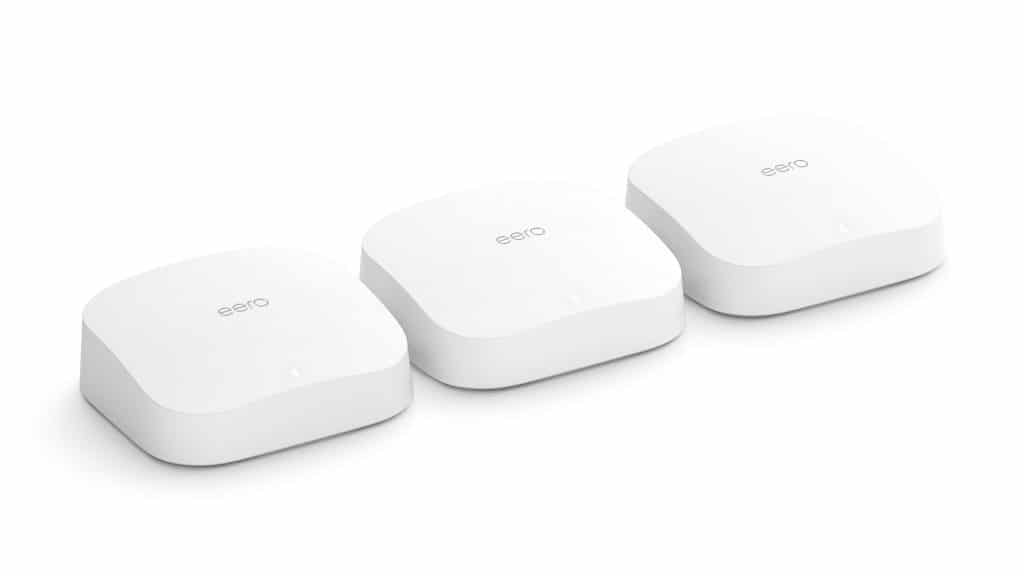Frontier Communications aims to improve in-home Wi-Fi coverage by using mesh technology from eero, an Amazon company. The offering will be available initially to Frontier gigabit customers.
The idea of mesh networking is to improve performance characteristics by broadcasting signals from multiple points in the home. The goal is to minimize dead zones, slow spots and buffering.
The eero Pro 6, the offering that Frontier will use, features online security, ad blocking, content filtering and parental controls. It also enables connection to Zigbee through subscribers’ Amazon accounts to control in-home elements such as smart lights, locks and plugs. eero enables subscribers to pause Internet access, share the network and take other actions. Management can be done via a mobile app.
“When you enter gigabit territory, it’s a different world for your whole-home Wi-Fi experience,” John Harrobin, Frontier’s Executive Vice President, Consumer, said in a press release. “With our powerful fiber-optic network, supported by eero Pro 6, our customers will enjoy high-quality and reliable premium speeds. Your home will have consistent internet connectivity, whether it is down a hall or between floors, providing a seamless experience for working, learning, shopping, gaming, and connecting.”
Last week, eero said that it had experienced 75% year-over-year growth in ISP network activations between September 2020 and September 2021. New deployments include REV within the Cable Bahamas Group of Companies, OXIO in Canada, Eye Networks in the Nordics, Adamo and MasMovil in Spain, TalkTalk and Utility Warehouse in the United Kingdom and UScellular and Mediacom in the United States.
The Pro 6, which will be included in the cost of Frontier’s gigabit service, requires professional installation. “Frontier techs carry and install the devices…it’s full professional installation,” Harrobin told Telecompetitor in an email response to questions from us about the Frontier Wi-Fi news. “They set it up in the right spot, test it, and ensure the customer knows how to manage the network via the app before they leave.”
The service may expand. “Currently, it’s only available for our new gig customers,” Harrobin said. “Of course, we are open to evolving the relationship based on the needs of our customers.”
The Frontier service comes at an important time for Wi-Fi. The category is growing aggressively. In February, the Wi-Fi Alliance estimated that the technology’s economic value will reach $3.3 trillion this year and grow to $4.9 trillion by 2025. The organization attributed much of the growth to the emergence of Wi-Fi 6 and the use of 6 GHz spectrum.
Wi-Fi has become increasingly important as people stay at home during the pandemic. Perhaps not surprisingly, however, complaints rose during this period. In September, Airties reported that 58% of survey respondents reported more home Wi-Fi issues than before the pandemic, while 55% said they had daily issues with their home Wi-Fi. A strong majority – 80% — prefer that their broadband provider set up their Wi-Fi in their homes.





